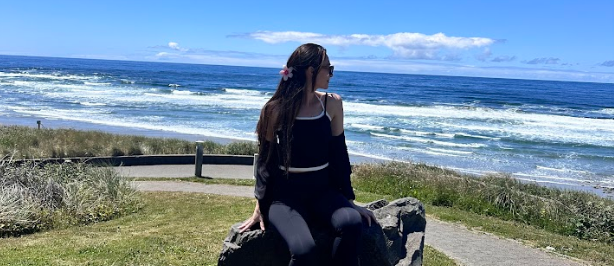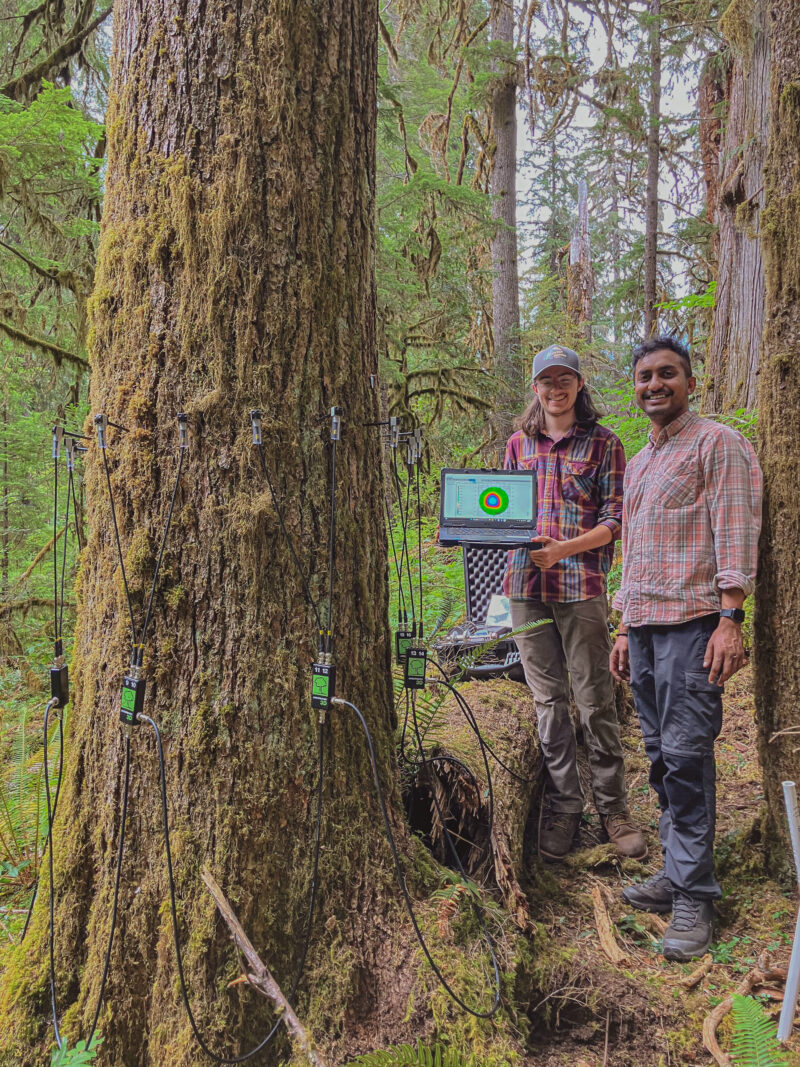Written by Aja Brown | Branching Borders
The College of Forestry’s international programs are designed to foster global connections and innovative research. Last summer, Sadete Zela, a visiting scholar from Albania, exemplified this mission. We recently had the chance to chat with her about her experiences at Oregon State University.

Sadete, who is from Tirana, Albania, is currently a master’s student in forest products, technology, and timber construction. Her academic journey took her to Austria for her undergraduate studies, and it was there that she truly found her passion for the field.
“When you’re a bachelor’s student, you don’t always know where to start,” Sadete shared. “But now in my master’s program, I can enjoy it more because I know what I like and what I want to focus on.”
During her Branching Borders internship, Sadete had the opportunity to work with Professor Scott Leavengood on a project that addressed a major issue in the Pacific Northwest: gorse.

For many Oregonians, gorse is a familiar sight. The invasive, highly flammable shrub has spread throughout the state, posing a significant fire risk, especially in coastal areas like Bandon. Sadete’s research, which is also the focus of her master’s thesis, aims to find a practical and sustainable use for this problematic plant.
“What is the better way to get rid of a material than to find a use for it?” Sadete asked.

The answer, she believes, is in turning gorse into a building material. Under Professor Leavengood’s guidance, Sadete worked on a project to create particleboards using gorse. The goal is to produce an eco-friendly and marketable product that can help companies and organizations like the Gorse Action Group remove the plant from the landscape.

Their initial trials were promising, and they are now focused on refining the process, testing different gorse fractions and comparing various binders to find the best combination for a durable particleboard. If successful, Sadete’s master’s thesis could be one of the first of its kind, offering a novel solution to a long-standing environmental problem. This collaborative research effort is continuing, with Professor Leavengood serving as a key mentor for her master’s thesis research at FH Salzburg, Austria.
Sadete’s time in Oregon wasn’t just about research. She actively connected with the Gorse Action Group, attending their meetings and seeing firsthand the community’s commitment to finding a solution.

She also built lasting friendships with her fellow “Branching Borders” interns and with a new friend she met on a shuttle. “I met her in the shuttle, and we had very good chemistry,” Sadete said. “She’s visiting me now, and I was able to travel a lot with her.”
Her travels took her to iconic Oregon locations like Crater Lake, Newport, and the Willamette Valley Winery. She also had an unforgettable visit to Bandon, where she collected gorse for her research and enjoyed some classic fish and chips by the ocean.

Sadete’s favorite spot on campus? The Memorial Union. She loved studying there, enjoying an iced coffee, and listening to the piano music.

Sadete’s journey is a testament to the power of international collaboration. She is a shining example of how a visiting scholar can not only contribute to important research but also build a global network of colleagues and friends.
“We always love when people visit and then want to come back because it means that we did the right thing,” we told Sadete. She enthusiastically agreed, confirming that she plans to return to Oregon in the future.

Are you an international student interested in visiting the College of Forestry? Check out our Visiting Scholars page to learn more about our programs.




